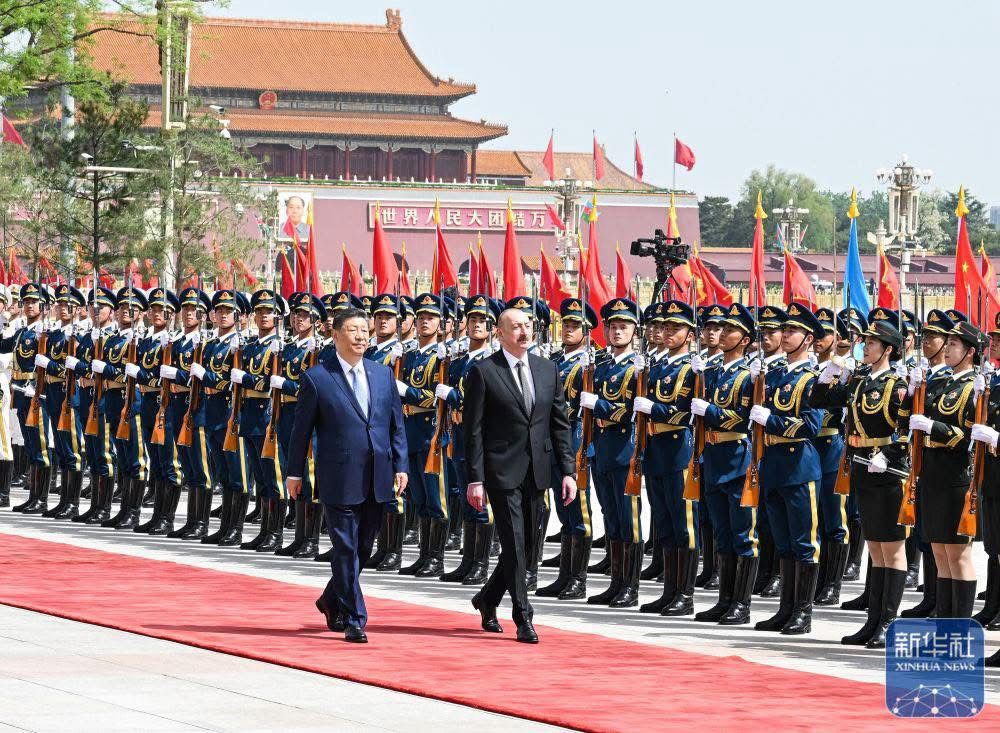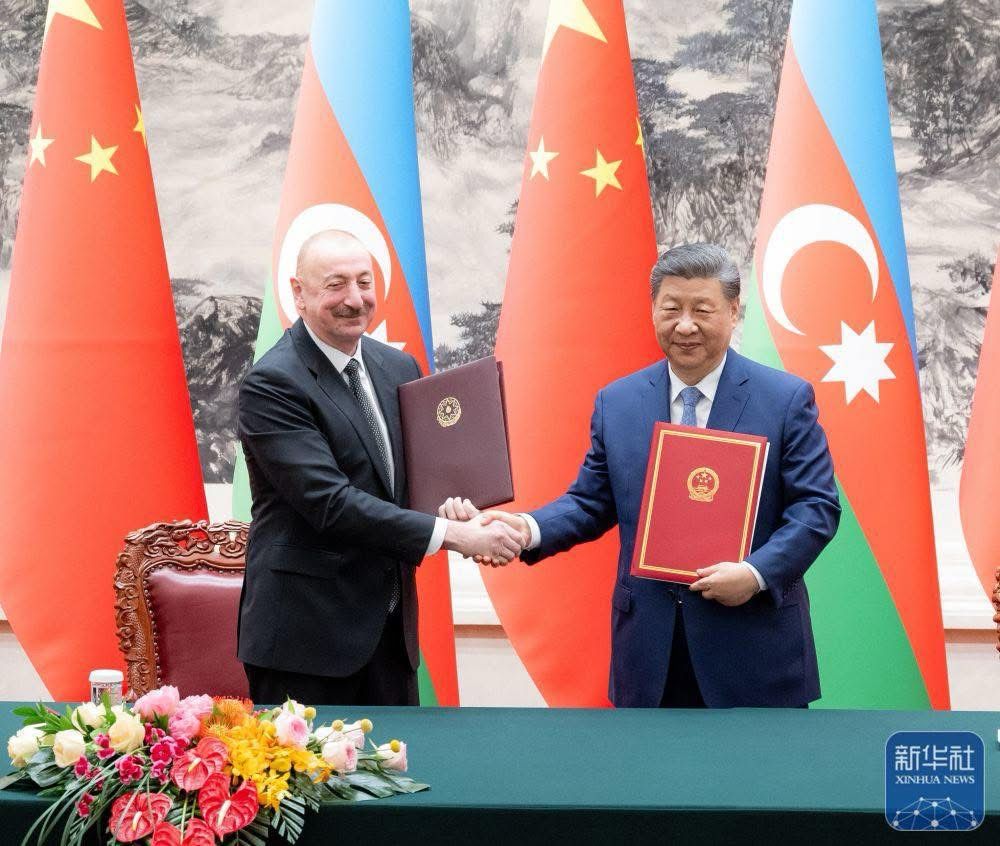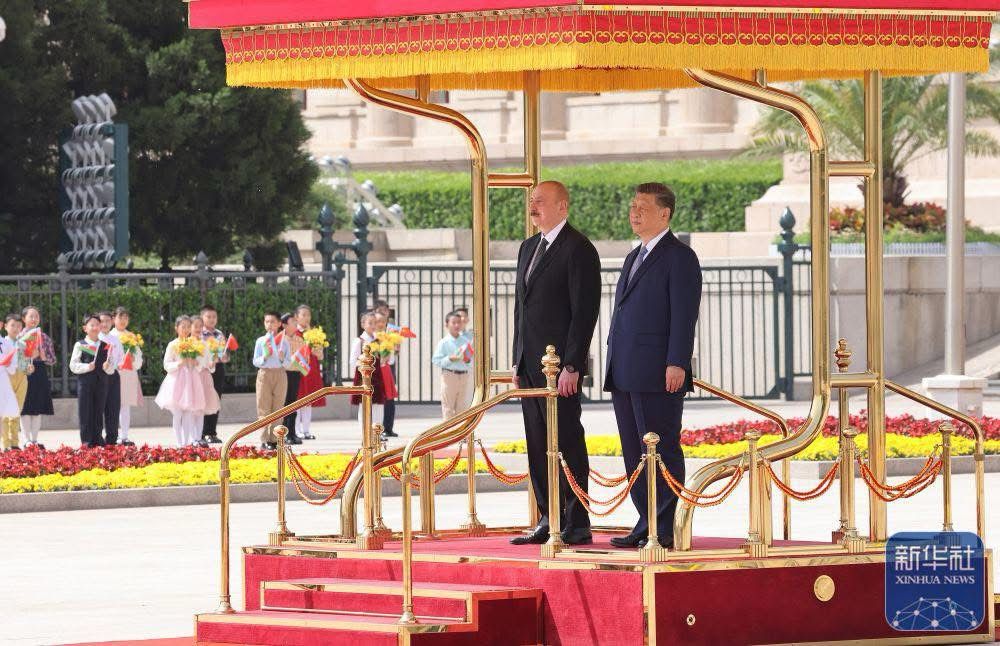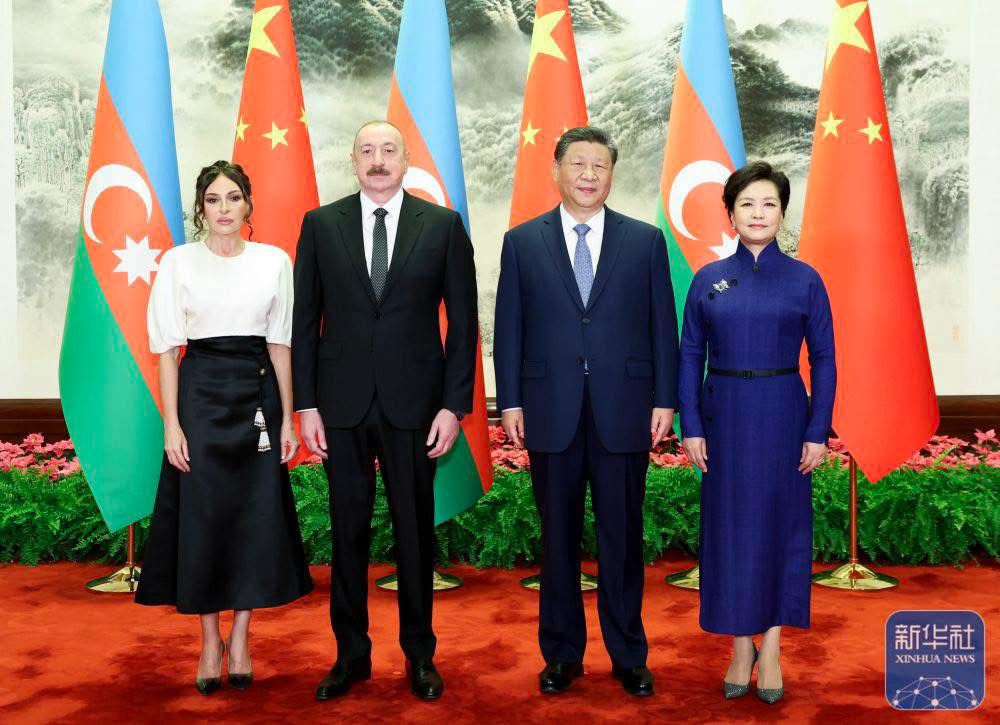By Qaiser Nawab
The ongoing two-day state visit of President Ilham Aliyev of Azerbaijan to China is a defining moment in the evolving partnership between these two nations. The meetings held today with Chinese leadership are poised to take their collaboration to new heights, solidifying the growing relationship between Azerbaijan and China under the framework of the Belt and Road Initiative (BRI). As the world increasingly shifts towards regional connectivity, the two countries have come together to chart a course that not only benefits them but also contributes to a more inclusive, peaceful, and sustainable global future. This historic visit is a reaffirmation of the growing importance of Azerbaijan in the Silk Road framework, which underpins both regional and global prosperity.
In the course of the meetings, Azerbaijan and China have announced a Comprehensive Strategic Partnership, a move that signals a strengthened alliance built on long-term mutual trust, shared goals, and an unwavering commitment to global multipolarity. This partnership highlights a deeper alignment between the two nations, moving beyond economic ties to encompass geopolitical solidarity and shared values. The Joint Statement signed during the visit has laid the foundation for intensified cooperation on a range of issues from economic development to security, climate change, and regional stability.

Azerbaijan’s Growing Role in the Belt and Road Initiative
Azerbaijan’s place in the global economic and geopolitical arena has been further cemented with its expanded role in the Belt and Road Initiative (BRI).
According to the Joint Statement, both countries have committed to enhancing bilateral economic cooperation, aligning Azerbaijan’s national development strategies with the goals of the BRI. The cooperation under BRI will expand trade, infrastructure development, and people-to-people exchanges between Azerbaijan and China, while also creating more opportunities for Azerbaijan to tap into Chinese technological expertise and investment.

Furthermore, this strategic partnership is expected to enhance Azerbaijan’s industrial base, providing it with the technological tools necessary to modernize and diversify its economy.
Expanding Energy,Industrial and Technological Collaboration
Both nations have committed to joint action on climate change and clean energy, recognizing that the future of their partnership must align with the global shift toward sustainable development. This commitment is in line with the BRI’s larger vision of green development and sustainable growth, where environmental concerns are integrated into all aspects of infrastructure and economic cooperation.

In addition to climate objectives, the focus on sustainable economic growth will drive cooperation in smart technologies and resource management. Azerbaijan’s ongoing efforts to modernize its energy sector, particularly in renewable energy and energy efficiency, will be bolstered by China’s expertise, creating a sustainable and environmentally responsible economic model.
A significant pillar of this comprehensive strategic partnership is the expansion of industrial and technological collaboration between China and Azerbaijan. With China’s burgeoning industrial sector and Azerbaijan’s growing need for modernization, the two nations are set to collaborate in key industries that will enable Azerbaijan to modernize and diversify its economy.
Azerbaijan stands to benefit from technological partnerships with China, particularly in manufacturing, digital technology, and innovation. The development of high-tech industries will facilitate job creation, the rise of local expertise, and long-term industrial growth. As part of this collaboration, China’s investment in Azerbaijan’s infrastructure projects will also ensure the building of a solid foundation for industrial expansion and increased regional economic integration.

Both nations have also expressed their commitment to visa liberalization, youth engagement, and academic exchanges, which will further deepen their cultural ties and strengthen societal bonds.
Both nations have expressed strong support for a reformed global governance system, centered on multilateralism and inclusive decision-making. They advocate for equitable representation of developing nations within global institutions like the United Nations. This shared commitment to reforming global governance reflects a convergence of interests, particularly in promoting inclusive development and equitable solutions to global challenges.



